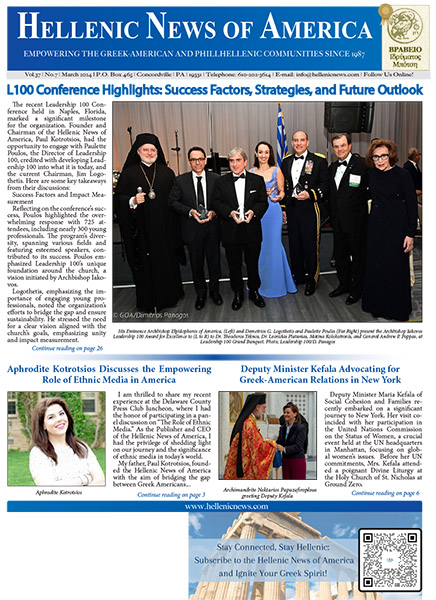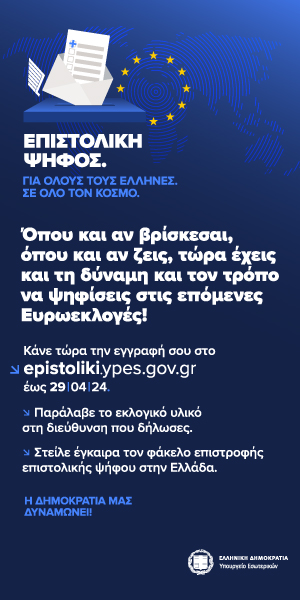AHI President’s Note: The American Hellenic Institute presents AHI’s Capital Report which is a timely synopsis of recent policy discussions in Washington to help keep you abreast of the latest developments. As a service to our membership and constituency, and to gain an understanding of the position of other entities on our issues, the American Hellenic Institute attends and participates at policy forums or roundtable discussions to ensure the policy positions of the Greek-American community are represented. The content provided in AHI’s Capital Report is for informational purposes only, and does not necessarily reflect the position or opinion of AHI.
Open or Closed Borders? Understanding Europe’s Migration Challenge AHI attended a panel discussion at the Center for Strategic and International Studies (CSIS) on the migration challenge facing Europe, Oct. 7, 2015. Panelists included: Deputy Prime Minister of Liechtenstein Thomas Zwiefelhofer; Catherine Wiesner, deputy assistant secretary of State, Bureau of Population, Refugees, and Migration; and Shelly Pitterman, UNHCR’s regional representative for the USA and the Caribbean. Heather Conley, director, CSIS Europe Program, moderated. Deputy PM Zwiefelhofer described the catastrophic effects migration has had on Europe in 2015. Millions of refugees from Syria and other parts of the Middle East are leaving their homes, undergoing life-threatening journeys across the Mediterranean in their attempts to reach Europe. Italy and Greece are overrun and overburdened. Because some countries have border controls in place and others are merely serving as a way of transit, the European Commission has started creating an action plan to address the issue. However, the ensuing debate has only weakened the European Union, he stated. In July, a relocation program led to the relocation of 20,000 refugees from Italy and Greece. The existing Dublin legislation is under scrutiny for member states that are struggling the most and it has since been determined that Europe must strengthen its assistance towards these members. Before closing, Zwiefelhofer briefly highlighted the strategy of Liechtenstein and its continued support of the EU and any future decisions on migration made by the European Commission. Pitterman reminded attendees that 60 million people were forcibly displaced as a result of the ongoing turmoil in Syria and Iraq, where residents continue to face a mega humanitarian crisis. Many displaced persons and refugees are at high risk of starvation and it is not limited just to those in refugee camps. Lebanon, for example, has extraordinary numbers of refugees and very few resources to house them. Europe needs a unified response to this crisis, Pitterman stated. The more restrictions and limitations Europe imposes upon refugees, the higher the chance they could become marginalized and resort to more dangerous means of entering Europe, such as human traffickers or smugglers. Wiesner emphasized that when examining this crisis, distinctions should not be made between “deserving” or “less deserving” individuals; rather, priority should be given to saving human lives, regardless of where they are from or how intense the conflict may be at their country of origin. Transit and host countries need humanitarian aid and fundamental assistance. Wiesner added the United States needs to cooperate with Europe and take on a much more active role. During the Q&A, moderator Conley asked the panel whether the world should be anticipating more mega-conflicts in the future (in other words, are displacements of this size the new norm?) and also asked for the panelists’ suggestions on how the screening process in the United States can be expedited. Thomas addressed the “new norm” by stating the solution to migration is solidarity and a step-by-step approach. Europe’s borders need to be managed in such a way that a system of legal and controlled immigration could be created and subsequently enforced. Shelly added her belief that a way to resolve this crisis is to bring together world leaders in order to create actual humanitarian solutions. – See more at: https://ahiworld.org/media-center/capital-report/2015/2034–ahi-capital-report-vol-7-issue-2.html#008







